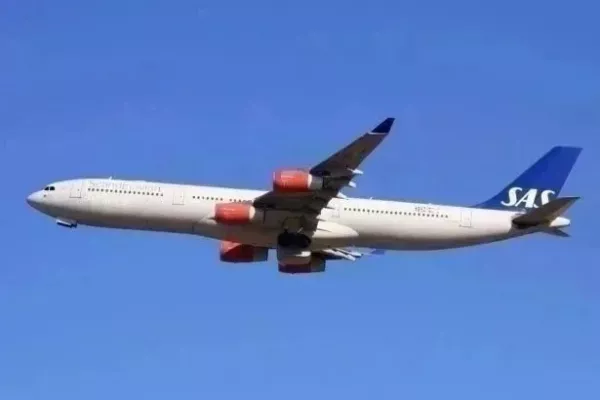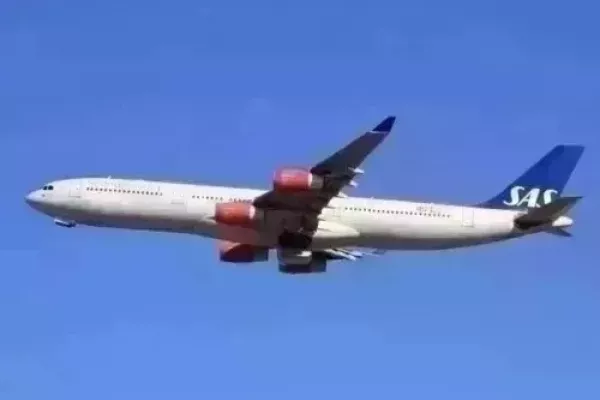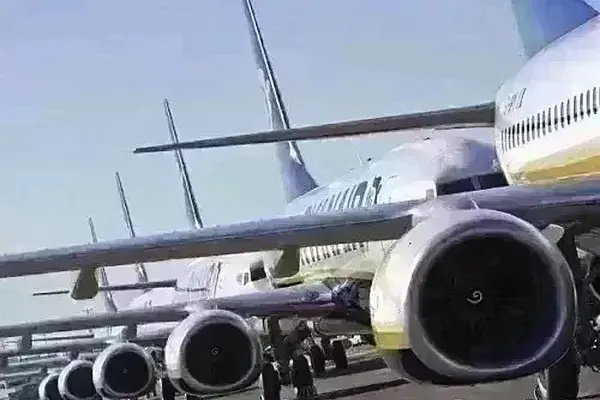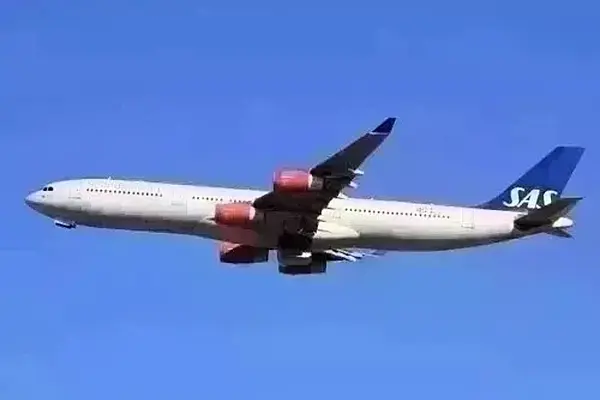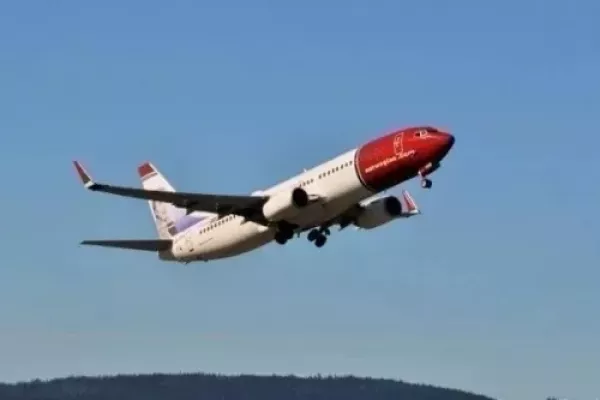Scandinavian airline SAS SAS.ST flew more than 1.9 million passengers in June, a rise of approximately 220% from a year ago, but said on Thursday 7 July that a pilot strike grounding much of its planes since Monday 4 July had impacted bookings toward the end of the month.
The airline, whose biggest owners are the Swedish and the Danish states, filed for bankruptcy protection in the United States on Tuesday 5 July, a decision it said was accelerated by pilots at its SAS Scandinavia arm going out on strike.
"The notice of strike from the SAS Scandinavia pilots’ unions started impacting our bookings toward the end of the month," SAS chief executive Anko van der Werff said in a statement.
SAS Pilot Strike Grounds Flights, Exacerbating Airline's Troubles
The above news was followed by news that hundreds of SAS SAS.ST flights were cancelled on Thursday 7 July as the airline wrestled with a strike by pilots at its main SAS Scandinavia arm, overshadowing a traffic surge during June.
Talks between the airline and pilots over a new collective bargaining agreement collapsed on Monday 4 July, prompting a strike which adds to travel chaos in Europe and deepens the financial crisis at SAS, which estimated it would ground half its flights.
The troubled airline, whose biggest owners are the Swedish and the Danish states, filed for Chapter 11 bankruptcy protection in the United States on Tuesday 5 July.
SAS on Thursday 7 July made its first appearance in US bankruptcy court in Manhattan, where it received permission to maintain routine business operations such as honoring fuel supply contracts and paying employee wages. SAS expects the US bankruptcy process to take between nine and 12 months.
Tuesday 5 July's traffic figures highlighted what SAS was now missing in the peak summer period, with the airline flying 1.9 million passengers in June, a 220% increase on the year.
Data from flight tracker FlightAware showed 202 flights, 66% of the airline's daily total, were cancelled on Thursday 7 July.
The Swedish pilots union said that the pilot associations had proposed making an exception for several weeks to SAS in order to repatriate stranded charter passengers.
Charter companies have warned thousands of people could be stranded unless a solution for their return flights, which were due to be operated by SAS, could be reached.
"Some of our destinations are inaccessible and lack other options for travelers to get home," the union said in a statement, adding that it was extending "a helping hand".
SAS did not immediately reply to a request for comment.
'COMPLETELY CRAZY'
The airline's stock has lost more than a quarter of its value since the strike began and has tumbled more than 60% since the start of the year as the Ukraine conflict disrupted Asian routes and the threat of strike action clouded the outlook.
Shares in SAS, which has struggled with a high cost base relative to low-fare rivals, closed down 11% on Thursday.
SAS has said the strike will cost it $10 million to $13 million per day and accelerated its decision to seek bankruptcy protection, which it said will help it accelerate restructuring plans, including deep cost cuts, announced in February.
The striking pilots have said they would consider pay cuts, but cannot accept SAS hiring new pilots through two new subsidiaries, under what unions say are worse terms.
Talks, which ended on Monday 4 July, have yet to restart, although unions said they had offered concessions.
"They should come back, it's completely crazy," Keld Baekkelund, chief negotiator for the Dansk Metal union, said, adding: "It almost costs more to strike (for) one day than what divided us."
SAS Cancels More Flights As Pilot Strike Grinds On
The above news was followed by news that Scandinavian airline SAS SAS.ST cancelled almost 70% of its flights on Friday 8 July as a pilots strike stranded thousands of tourists overseas.
Some 181 flights, or 69% of those scheduled, were cancelled on Friday 8 July, data from flight tracker FlightAware showed.
SAS has been forced to cancel hundreds of flights since Monday when talks between the airline and pilots over a new collective bargaining agreement collapsed.
The carrier, whose biggest owners are the Swedish and the Danish states, filed for Chapter 11 bankruptcy protection in the United States this week.
It held a first court hearing on Thursday 7 July in a process SAS expects will take up to a year.
Since the talks broke down the only movement has been work toward an agreement between SAS and unions allowing the carrier to bring home stranded charter passengers booked on flights operated by SAS.
An SAS spokeswoman said about 18 planes were set to repatriate such travellers on Friday while a negotiator for Dansk Metal, representing Danish pilots, said unions were still seeking assurances the planes would be used for no other purpose.
As travel rebounds from pandemic lows, strikes and staff shortages are forcing airlines to cancel thousands of flights and causing hours-long queues at major airports across Europe.
Rampant inflation has also spurred demands for higher wages while airlines look to strike deals to save their summer travel schedules.
On Thursday 7 July, unions said British Airways' check-in staff at London's Heathrow airport had suspended a planned strike after the airline agreed to a "vastly" improved offer of higher pay.
SAS' striking pilots have said they would consider pay cuts, but cannot accept the airline hiring new pilots through two new subsidiaries, under what unions say are worse terms.
SAS CEO Says Agreeing To Pilots' Current Demands Would Keep Investors Away
All of the above news was followed by news that Scandinavian airline SAS SAS.ST is not able to agree to the current demands made by unions representing pilots on strike because such a deal would scare off potential new investors, the company's chief executive said on Friday 8 July.
"That would be very damaging because it doesn't allow us to get investors in," Anko van der Werff said in an interview.
News by Reuters, edited by Hospitality Ireland. Click subscribe to sign up for the Hospitality Ireland print edition.
